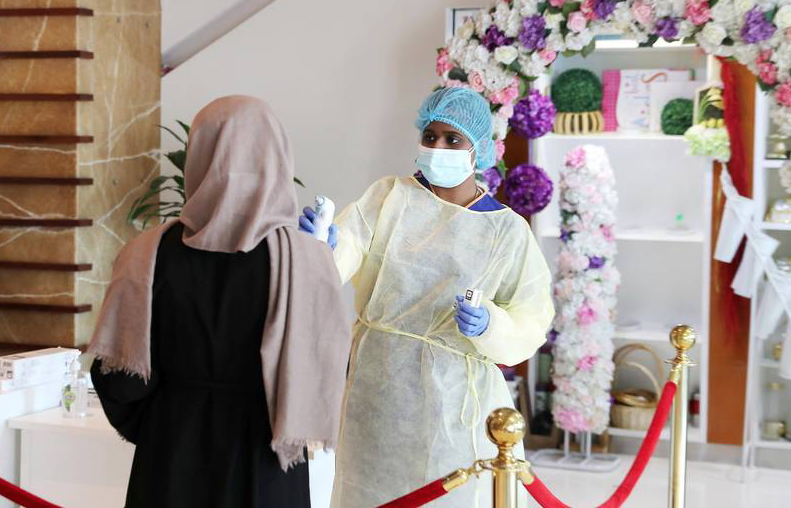Younger patients admitted to isolation wards during the pandemic worried more and had more depressive symptoms than older people, a study of more than 130 Covid patients in Abu Dhabi found.
Isolating patients from the general population in hospitals is rare but the practice was widespread in the first months of the Covid-19 pandemic to limit infections.
Research published in this month’s Journal of Epidemiology and Global Health assessed the mental health effects on patients confined to isolation units in three Abu Dhabi hospitals in March 2020.
sychiatrists and researchers from Abu Dhabi Health Services Company, Zayed University’s Department of Psychology and the Public Health Research Centre of NYU Abu Dhabi evaluated data collected by self-assessment questionnaires and interviews.
Experts measured levels of anxiety, depression and stress, grading them into five categories — normal, mild, moderate, severe and extremely severe.
While most patients experienced normal levels of stress, experts found that length of stay was associated with higher levels of psychological distress.
Data showed those aged 41 to 60 had lower levels of anxiety compared to the 31 to 40 age group.
“To our knowledge, this is the first study to investigate the mental health impact of Covid-19 among Covid-19 inpatients in the UAE,” the study authors said.
“The length of hospital stay was statistically significant. The risk of stress increased as length of hospital stay increased.
“Our results on the psychological impact of Covid-19 among hospitalised patients may help to identify those at risk for psychological distress due to Covid-19 hospitalisation.”
All 132 patients who took part were aged over 18, clinically stable or with vital signs within normal limits, could communicate without difficulty and were cognitively able to comprehend and respond to the questionnaire.
Results showed those with a medical condition had higher levels of psychological distress compared to those without a medical condition.
Better prepared
Dr Saheer Sainalabdeen, a pulmonologist at Medeor Dubai, treated hundreds of isolation cases at the height of the pandemic.
“Normally with an infection, isolation is not usually used so Covid was a first for many people,” he said.
“People were not only away from their families and work, but they could not engage in any activities, which impacted their mental health.
“In March 2020, it was early in the pandemic so the infrastructure around testing was still evolving.
“It took a long time to get the results, so people were isolating for longer periods than would be the case today.”
Often, the only contact patients had was with medics wearing full protective equipment for days, while concern for loved ones contributed to stress.
Regular communication and telephone conversations with psychologists helped those in isolation wards with the added fear of the unknown, Dr Sainalabdeen said.
“We would try to communicate with patients as much as possible and give them a realistic timescale of their recovery,” he said.
“Where possible, we would get them to engage with a psychologist or psychiatrist over the phone. The most effective method was spending time with these patients.
“Because of the pandemic, we are better prepared now and people are more aware of looking after their mental health.
“We saw how it can improve the recovery period during Covid.”
Read More: The National News



